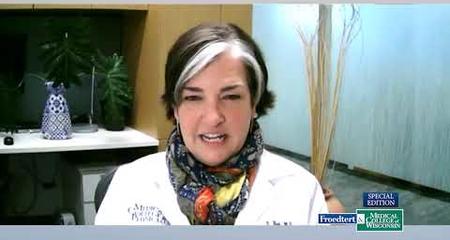Progressive memory loss is not a normal, inevitable part of the aging process, and is reason for concern. Memory loss may be so gradual that it goes unnoticed in the beginning. Family members are often the first to sense that something is wrong. This is the time when detection and intervention are most valuable.
There are several types of memory loss. Our specialists will work with you or your loved one to properly diagnose the condition and develop the best treatment plan.
Age-related memory impairment. You feel like your memory is slipping or thinking ability is getting worse, but you have age-appropriate performance on standard cognitive testing.
Mild cognitive impairment. This is the stage between the expected cognitive decline of normal aging and the more serious decline of dementia. It can involve problems with memory, language and judgment that are greater than normal age-related changes, but do not interfere with your day-to-day activities.
Alzheimer’s disease. Progressive mental deterioration can occur in middle or old age and is due to a specific pathological degeneration of the brain in a specific pattern. It is the most common cause of dementia and often accounts for the outdated term of “senility.”
Posterior cortical atrophy (Benson’s syndrome). This form of dementia is usually an atypical variant of Alzheimer’s Disease. The disease generally causes atrophy of the back of the cerebral cortex, resulting in a progressive disruption of complex visual processing.
Limbic-predominant age-related TDP-43 encephalopathy (LATE). This newly recognized (but very common) form of dementia in people over 80 mimics the usual symptoms of Alzheimer’s disease, but results from a different protein build-up in the brain. Many patients formerly diagnosed on clinical basis with Alzheimer’s disease may actually have LATE. As of 2019, physicians have not settled on the diagnostic criteria for LATE.
Frontotemporal dementia (FTD) or frontotemporal lobar degeneration. This diverse group of uncommon disorders primarily affect the frontal and temporal lobes of the brain — the areas generally associated with personality, behavior and language.
Primary progressive aphasia (PPA). This neurological syndrome affects language capabilities as they become slowly and progressively impaired. Unlike other forms of aphasia that result from stroke or brain injury, PPA is caused by neurodegenerative diseases such as Alzheimer’s disease or FTD.
Corticobasal syndrome. This rare progressive neurological disorder is characterized by cell loss and deterioration of specific areas of the brain. Initial symptoms include motor abnormalities in one limb that eventually spread to affect all the arms and legs.
Progressive supranuclear palsy (Steele-Richardson-Olszewski syndrome). Patients with this uncommon brain disorder experience serious problems with walking, balance and eye movements. The disorder results from the deterioration of cells in areas of your brain that control body movement and thinking.
Lewy body dementia. The second most common types of progressive dementia after Alzheimer’s disease is caused by protein deposits called Lewy bodies that develop in the nerve cells of the brain regions that involve thinking, memory and movement (motor control).
Normal pressure hydrocephalus. Cerebrospinal fluid accumulates and causes the ventricles in the brain to enlarge, sometimes with little or no increase in intracranial pressure.
Vascular cognitive impairment/vascular dementia. Impaired blood flow to the brain causes problems with reasoning, planning, judgment, memory and other thought processes. You can develop this form of dementia after a stroke blocks an artery in your brain, or with gradually progressive hardening of the arteries that can occur silently without obvious stroke-like symptoms.
Virtual Visits Are Available
Safe and convenient virtual visits by video let you get the care you need via a mobile device, tablet or computer wherever you are. We'll assess your condition and develop a treatment plan right away. To schedule a virtual visit, call 414-777-7700.


